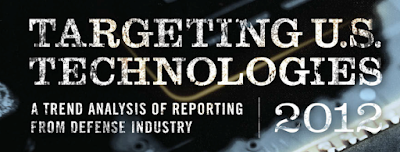
 New Special Exhibit
New Special Exhibit Exquisitely Evil: 50 Years of Bond Villains
Meet Bond’s villains, uncover their evil schemes, and explore their exotic lairs and weapons in this special exhibit. Now open through 2014.
Exquisitely Evil Family Night
Friday, January 11
You are invited for a secret after-hours infiltration of the Museum’s newest exhibition, Exquisitely Evil: 50 Years of Bond Villains. Families are welcome to this exclusive viewing of the special exhibit complete with Code Cracker competitions, Bond Spy Trivia contests, SPY snacks, hot cocoa, and a chance to explore all forms of spy tradecraft. Eye patches optional.
Spying in America
Espionage from the Revolutionary War to the Dawn of the Cold War - Tuesday, January 15 (FREE)
Join Michael Sulick, former director of the CIA's National Clandestine Service, as he discusses his new book, Spying in America, which presents a history of more than 30 espionage cases inside the United States including Benedict Arnold and Julius Rosenberg.
On the Front Line
Protecting Presidents and Prime Ministers - Thursday, January 17
As Inauguration Day nears, consider what it’s like to guard the President. Meet two experts who know first-hand the work in keeping the head of the state safe: Mark J. Basil served with distinction in the United States Secret Service for ten years; and Daniel J. Mulvenna retired from the Security Service of the Royal Canadian Mounted Police after 21 years.
Spy Hunters
The Women Who Caught Aldrich Ames - Wednesday, January 23
Meet Sandy Grimes, a former CIA Operative in the Agency’s Clandestine Service, and hear how she and her fellow operative Jeanne Vertefeuille used their determination, hard work, and cunning to enable the capture and conviction of their former colleague and infamous CIA officer-turned traitor: Aldrich Ames.
Power and policy in syria
Intelligence Services, Foreign Relations and Democracy in the Modern Middle East - Wednesday, January 30
Join Radwan Ziadeh, Director of the Syrian Center for Political and Strategic Studies, as he presents a fresh and penetrating analysis of Syria's political structure and the Syrian intelligence service.
Spy Seminar Series
Exfiltrations, Captures, or Kills: Famous High Stakes Intelligence Operations
- Wednesday, February 6 - February 27
Intelligence operations that hold human life in the balance are some of the most difficult missions any intelligence service will ever undertake. Exfiltrations are supremely delicate. This is the process of extracting a person or people from a targeted site with absolute urgency due to a sudden change which makes the site hostile. This could happen when a spy’s cover is blown or a change in leadership puts people in danger. Captures are just that - snaring an enemy. And lastly, kills. Wet jobs. Assassinations. When the enemy is bad enough that termination is the only answer. In this series, a distinguished group of experts and former intelligence personnel will introduce you to some of the greatest of these intense operations. — In collaboration with the Smithsonian Resident Associate Program.
While there, stop by the Spy Museum Store and pick up a copy of "Is My Cell Phone Bugged? Everything you need to know to keep your mobile communications private."
































